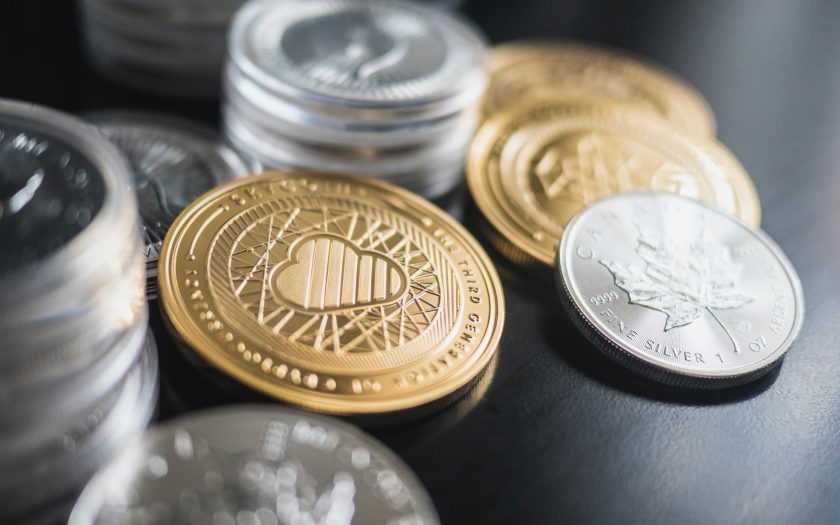
by Sergio Goschenko
Brazil registered its highest number of companies and institutions declaring ownership of cryptocurrencies in August. The numbers, which come directly from the Brazilian Tax Authority (RFB), show that more and more institutions are eager to purchase cryptocurrency, and also indicate that the most significant volumes are moved using Tether’s stablecoin usdt.
Institutions are attracted to holding crypto in Latam countries due to their economies’ specific problems. Recently, the Brazilian Tax Authority (RFB) registered a record increase in the number of these institutions declaring ownership of some kind of cryptocurrency. The numbers, that correspond to August’s statements, show that more than 12,000 companies in Brazil acknowledge holding crypto as part of their treasury.
This indicator rose from the number of companies that declared having crypto in July (11,360). However, the statements of individuals did register a slowdown when compared to July, registering 35,000 statements less in August. However, this indicator is still high, with more than 1,300,000 individuals declaring they have some kind of crypto as part of their assets.
Each month the Brazilian Tax Authority (RFB) informs the market about movements in the number of mandatory statements regarding the ownership of crypto to give a glimpse into the evolution and direction of the market.
USDT, the dollar-pegged stablecoin issued by Tether, is one of the tokens most used in the country, at least when it comes to value moved. More than $1.4 billion was moved using USDT across 79,836 operations in August, with an average amount of almost $18,000 per transaction.
However, bitcoin beat USDT when comparing the number of transactions made in the same period. During August, more than 2.1 million transactions were made using BTC. However, the amount of money involved was far less, reaching an average amount of close to $130 per transaction. BRZ, the first Brazilian real-pegged stablecoin, also registered significant levels of movement, alongside ETH and USDC, yet another dollar-pegged stablecoin.
These numbers show that the cryptocurrency market is growing in the country at an accelerated rate, given that in July, the Brazilian Tax Authority also registered a record number of individual cryptocurrency ownership statements. This has caused many fintech companies like Picpay and Nubank, and even traditional banks such as Santander, to announce their intention to include cryptocurrency services as part of their portfolio.
What do you think about the record number of institutions registering cryptocurrency ownership in Brazil? Tell us in the comments section below.
Sergio is a cryptocurrency journalist based in Venezuela. He describes himself as late to the game, entering the cryptosphere when the price rise happened during December 2017. Having a computer engineering background, living in Venezuela, and being impacted by the cryptocurrency boom at a social level, he offers a different point of view about crypto success and how it helps the unbanked and underserved.
Image Credits: Shutterstock, Pixabay, Wiki Commons, Mehaniq / Shutterstock.com
Disclaimer: This article is for informational purposes only. It is not a direct offer or solicitation of an offer to buy or sell, or a recommendation or endorsement of any products, services, or companies. Bitcoin.com does not provide investment, tax, legal, or accounting advice. Neither the company nor the author is responsible, directly or indirectly, for any damage or loss caused or alleged to be caused by or in connection with the use of or reliance on any content, goods or services mentioned in this article.
Central Bank of Brazil Confirms It Will Run a Pilot Test for Its CBDC This Year
The Central Bank of Brazil has confirmed that the institution will run a pilot test regarding the implementation of its proposed central bank digital currency (CBDC), the digital real. Roberto Campos Neto, president of the bank, also stated that this … read more.
Oman to Incorporate Real Estate Tokenization in Virtual Assets Regulatory Framework
Real estate tokenization is set to be incorporated into Oman Capital Markets Authority (OCMA)’s virtual asset regulatory framework. According to an advisor with the authority, the tokenizing of real estate will open investment opportunities for local and foreign investors. Real … read more.
 How To Make Huge Profits In A Short Time With Crypto
How To Make Huge Profits In A Short Time With CryptoGet detailed training system that shows an absolute beginner (without any skill) how to make huge profits in a short time with crypto.
 Crypto + NFT Quick Start Course
Crypto + NFT Quick Start CourseThe #1 course for profit in the Crypto & NFT world - You will discover the secrets that 99% of people don’t know yet





